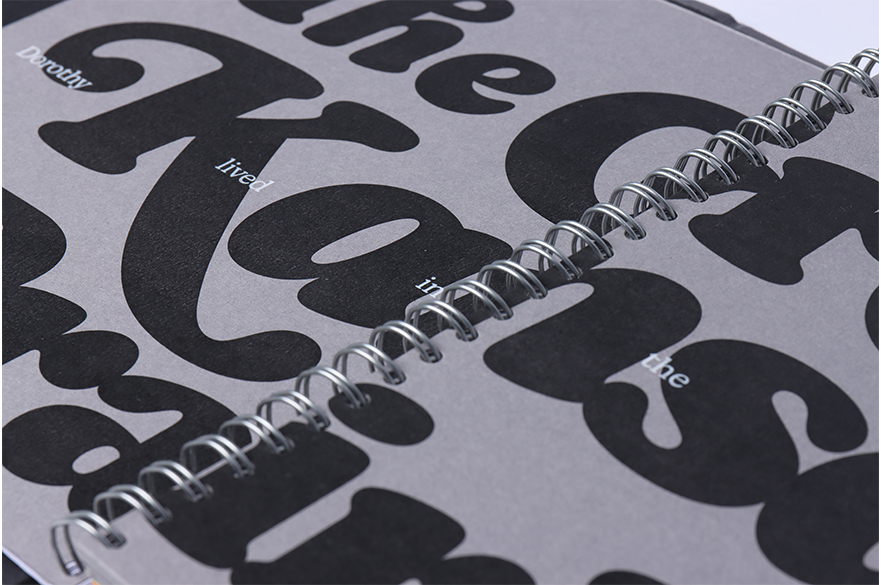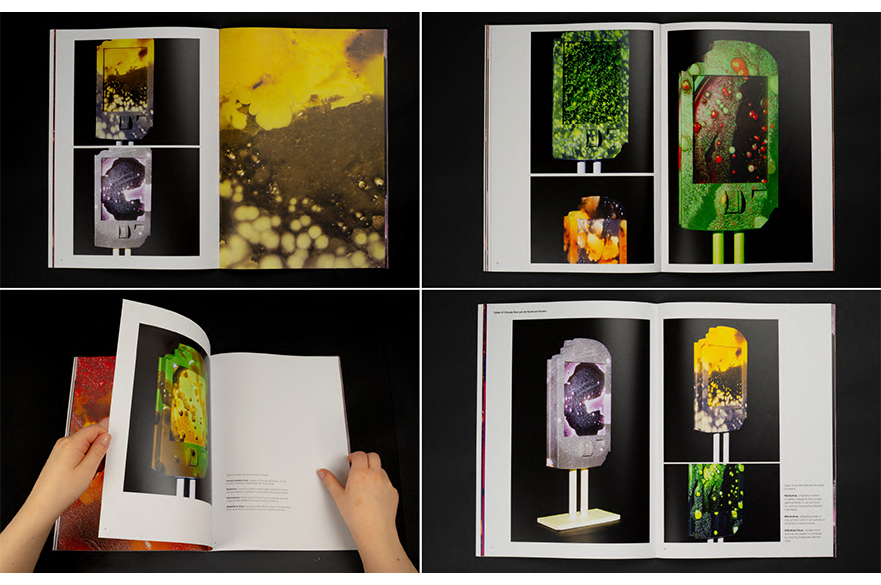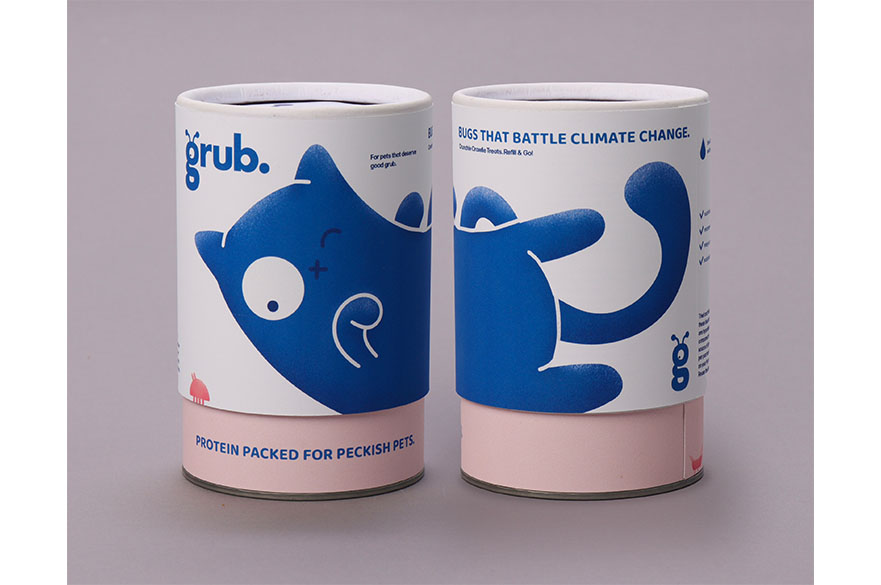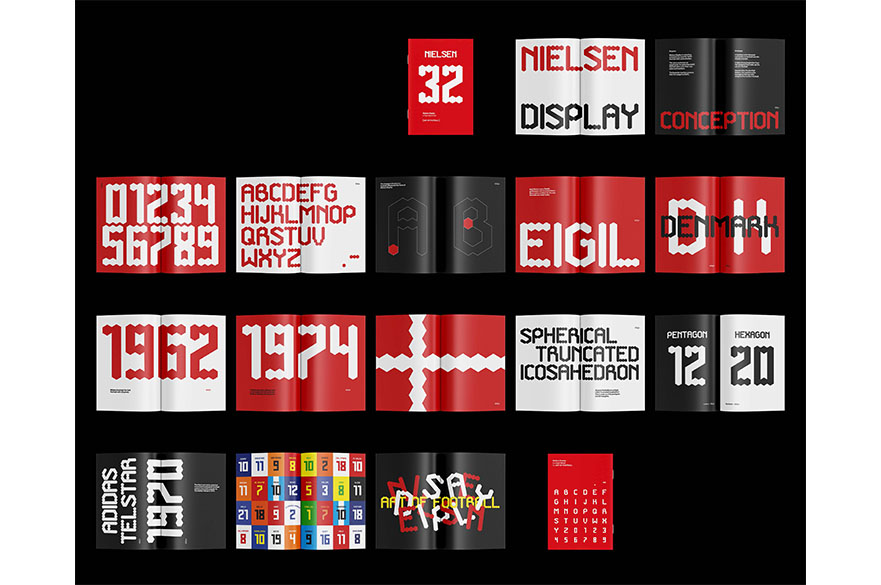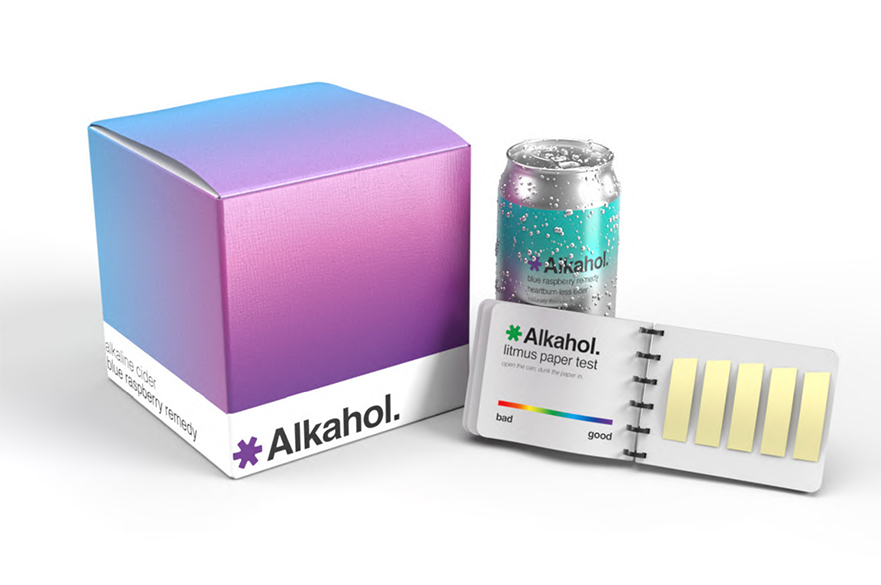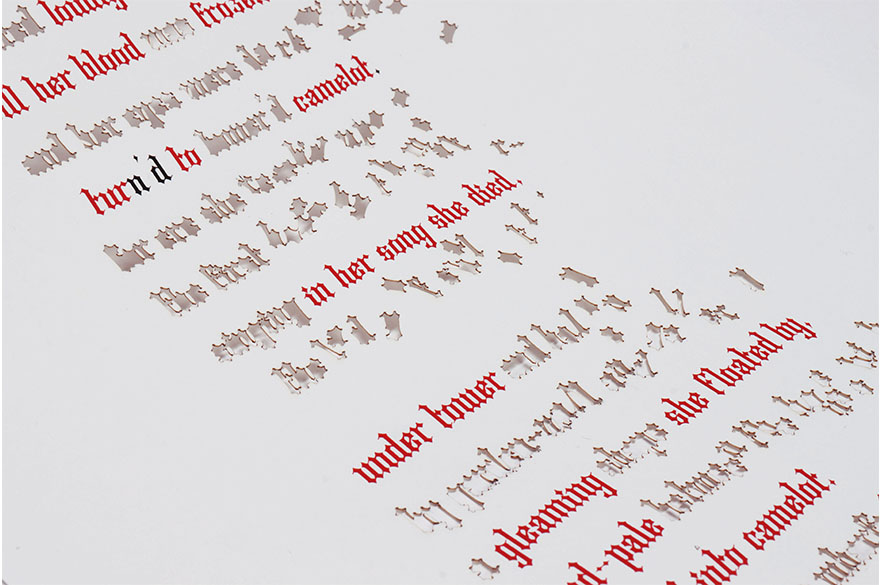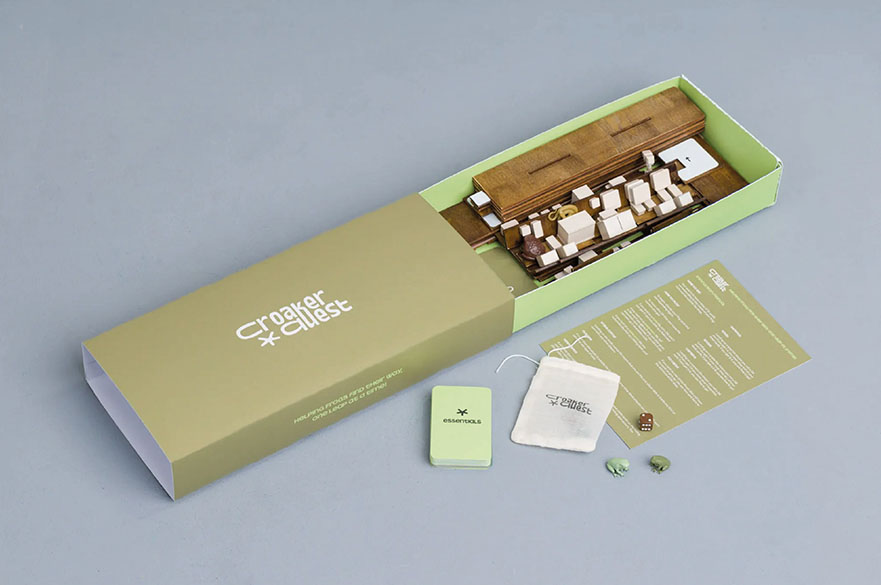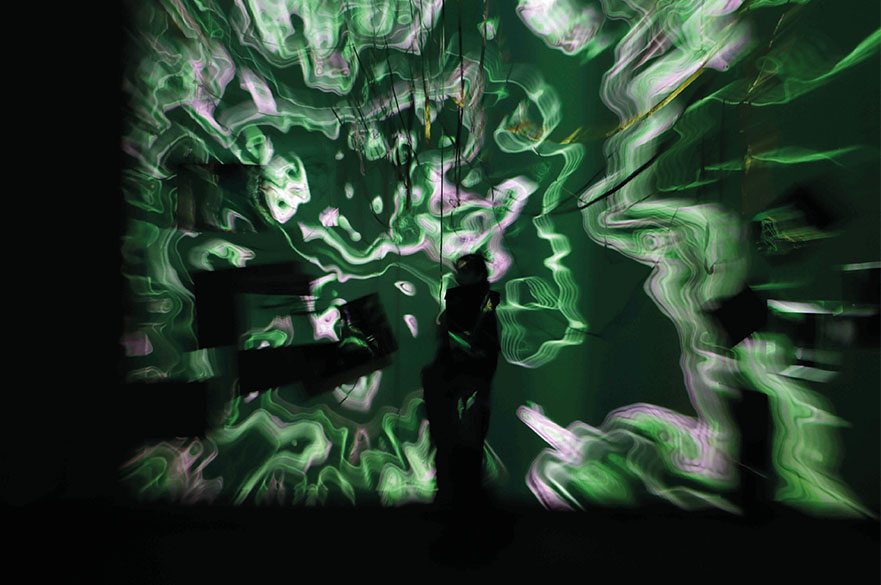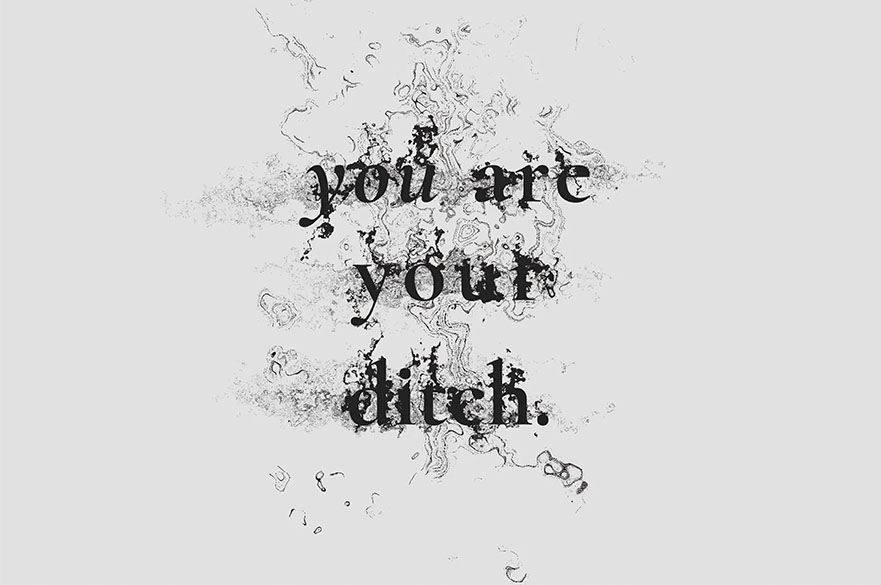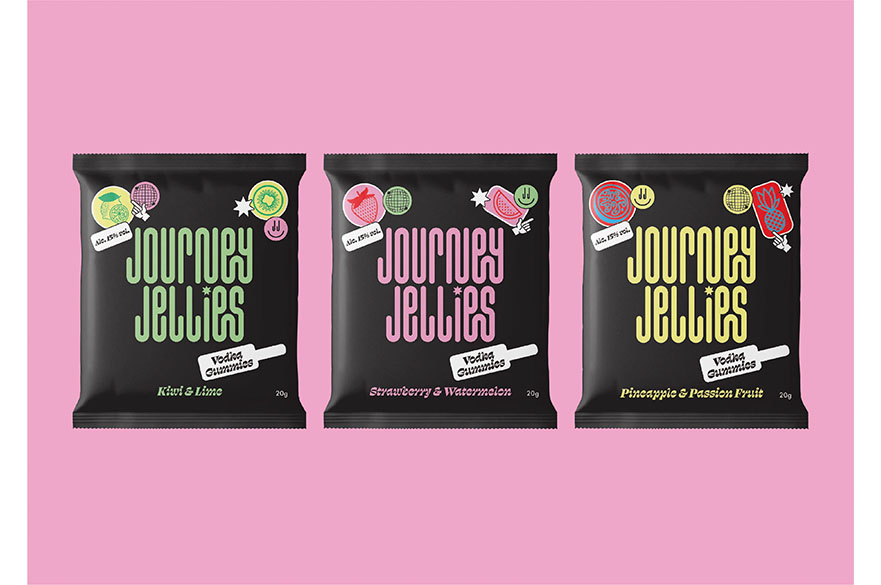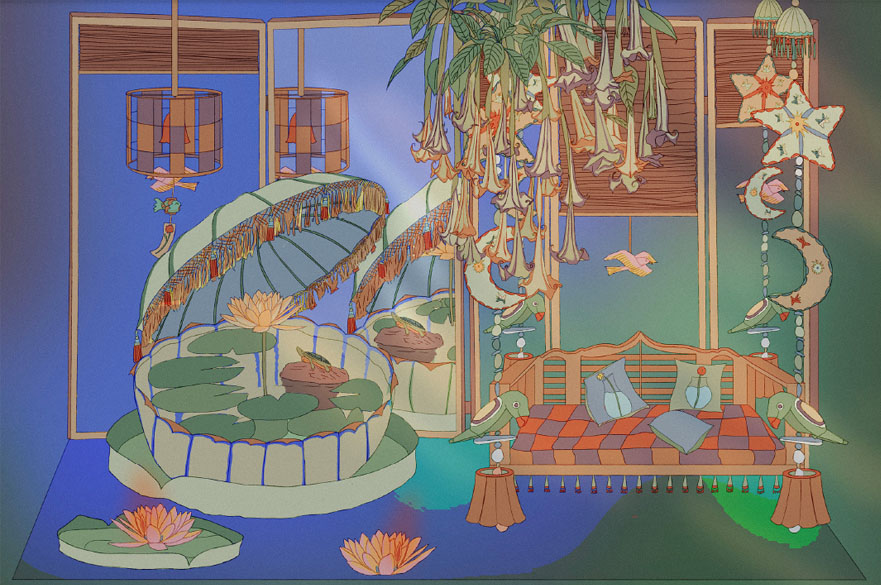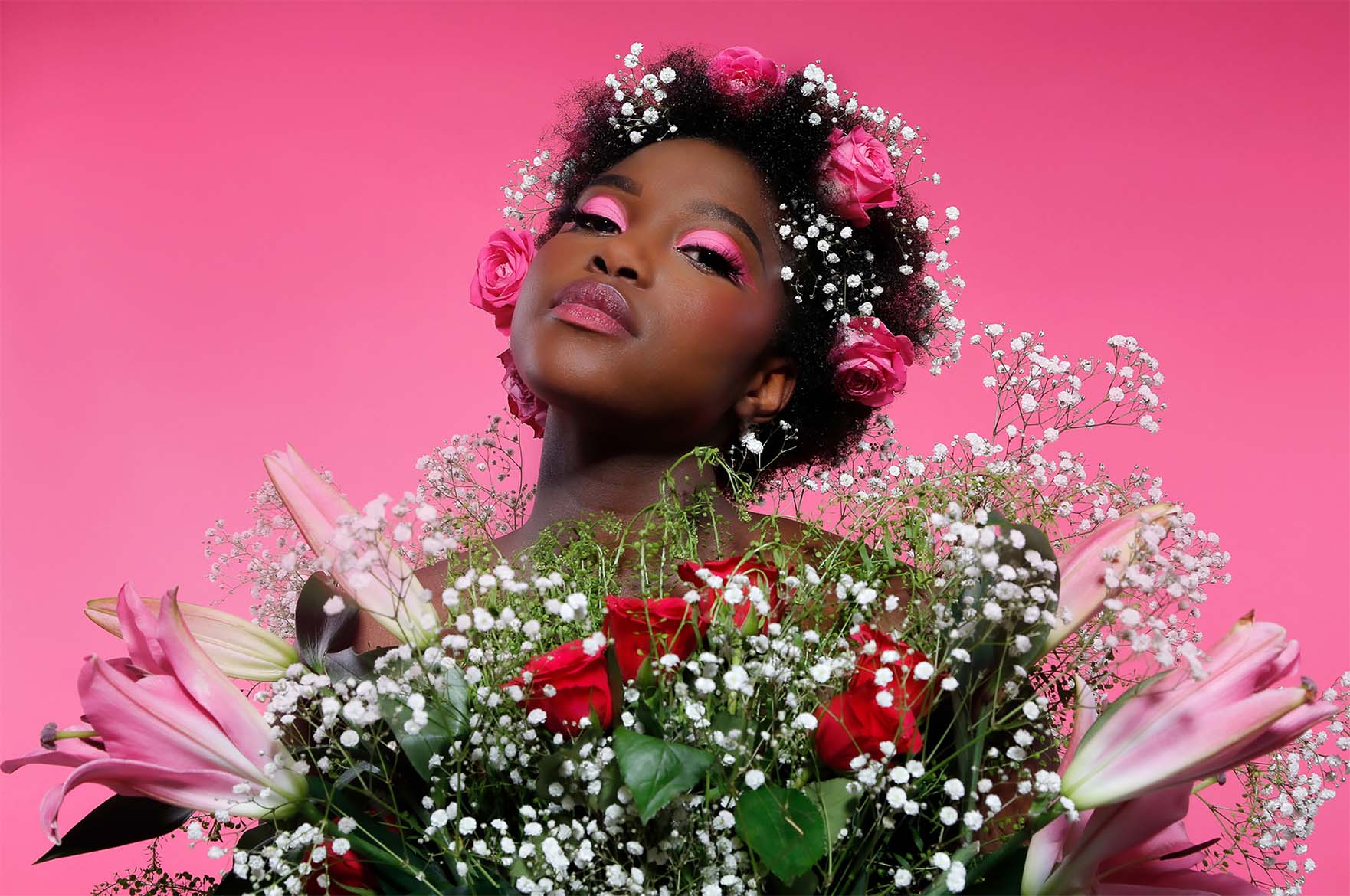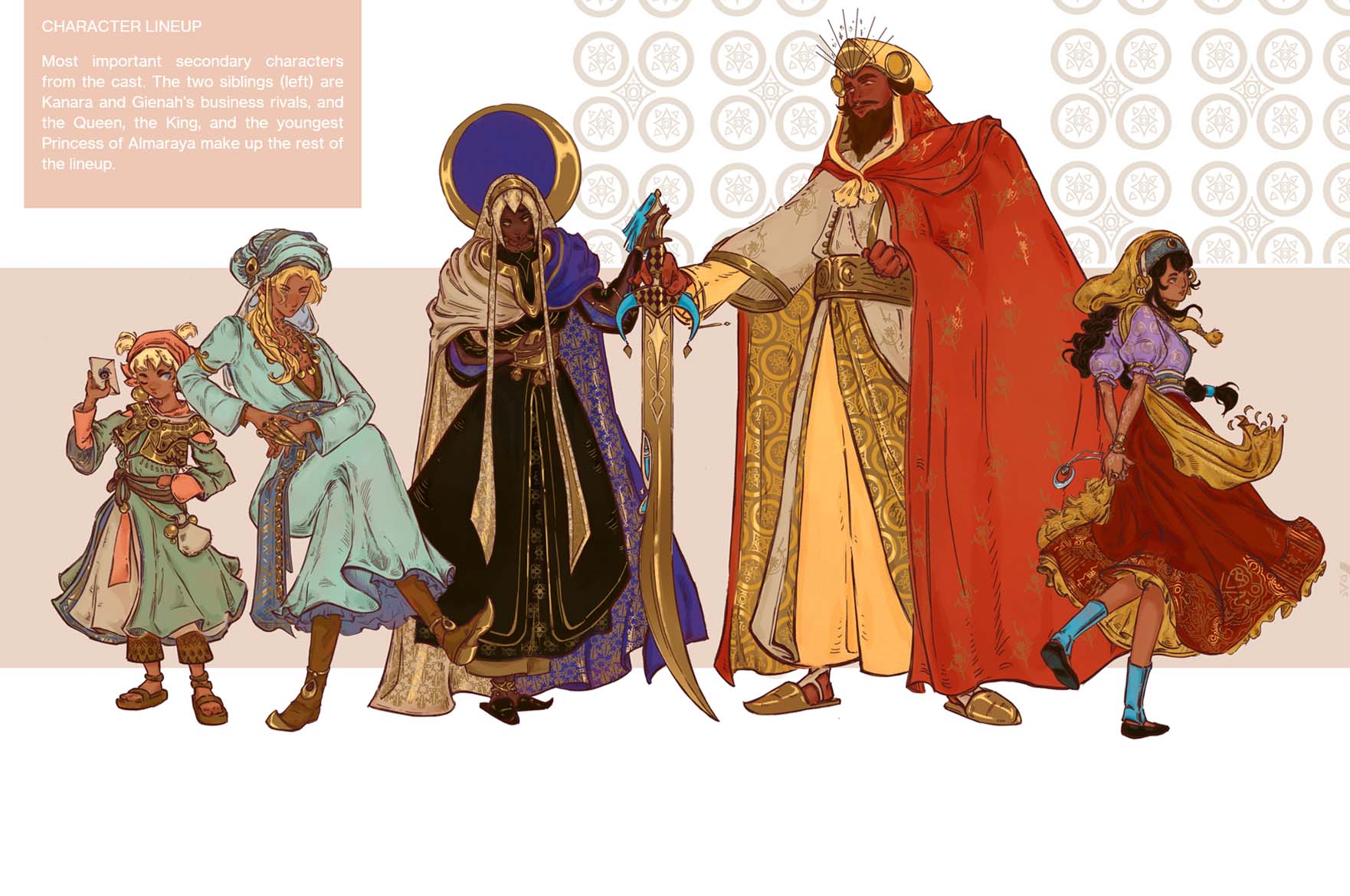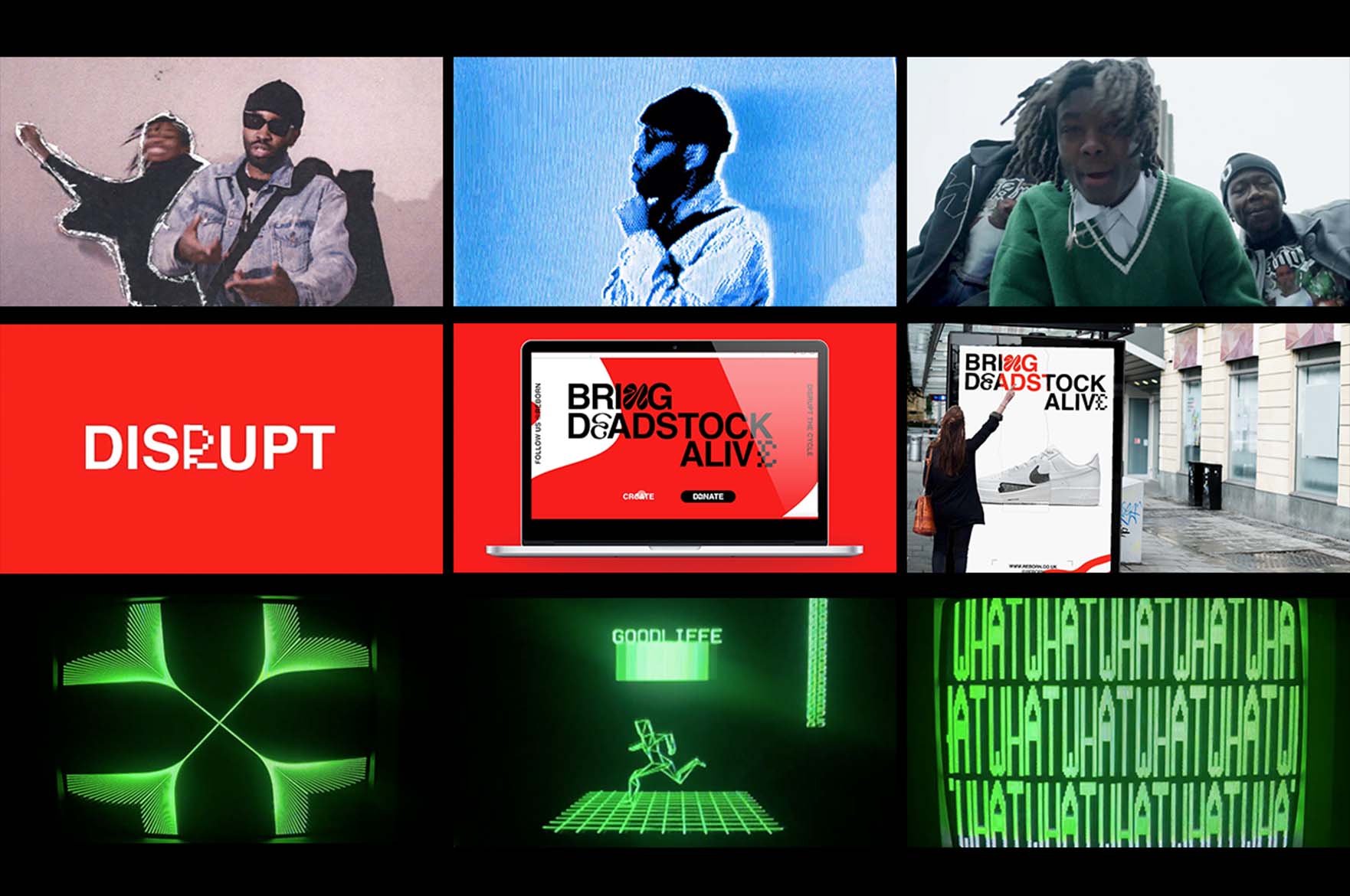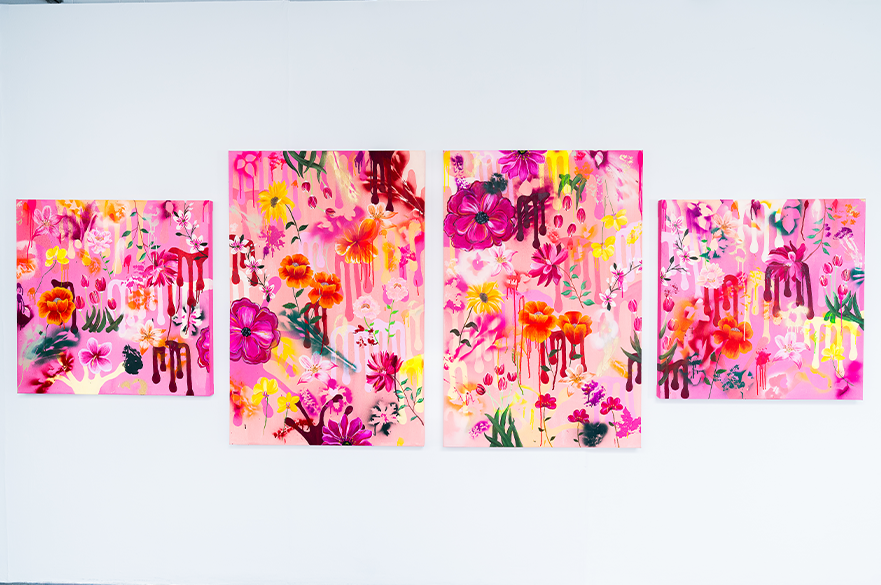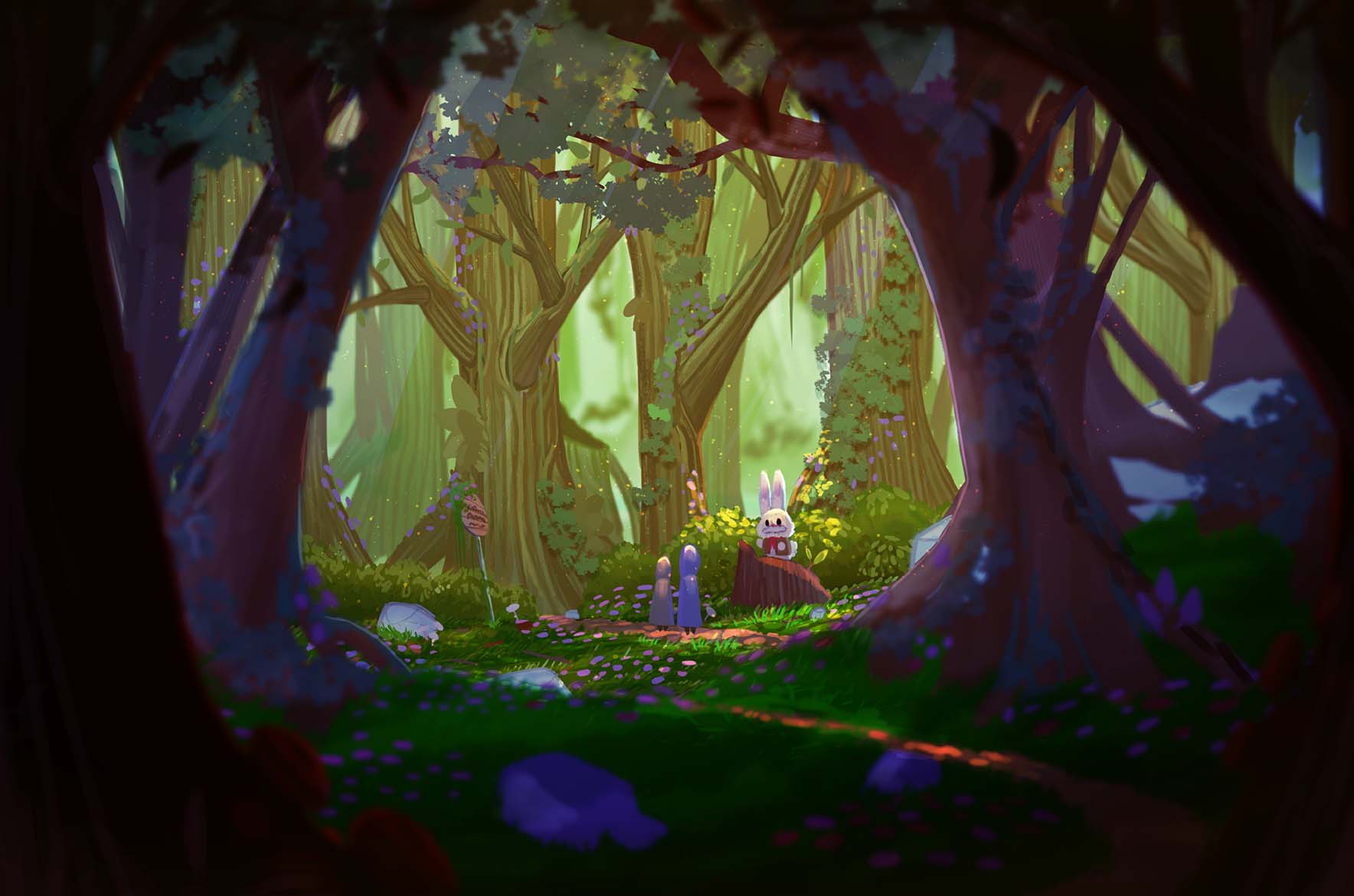This course is in Clearing
Offers from 80 tariff points
About this course
Master branding, typography, publishing, motion graphics, and more – all while tackling real-world design projects. Hone your professional and technical skills and develop a visual design language that's uniquely you. You'll go beyond theory, experiment with emerging technologies, and refine your technical skills to equip yourself to thrive in the ever-evolving graphic design landscape.
By the end of your degree, you'll graduate with a professional portfolio that showcases your unique design voice. Our graduates are making waves in the industry across fields such as art direction, branding and identity, editorial design, interactive design, illustration, and more.
15
What you’ll study
Explore all aspects of graphic design on this award-winning degree and set yourself up for a career in fields such as art direction, advertising, branding and identity, packaging design, design for screen and interactive design, editorial design, illustration, motion graphics or publishing.
There is an opportunity for students to undertake a placement year, and transfer to the Sandwich route, please see further details in the ‘Year Three’ section below.
The Fundamentals of Graphic Design
(100 credit points)
Learn about, and begin to practise, the process behind effective graphic design. Focus on topics such as typography, image-making, branding, packaging, editorial design, illustration, and film or animation. Throughout this module you will be developing a portfolio of work that demonstrates your ability to document a design process: including evidence of design research, ideas generation and exploration, as well as appropriate presentation skills.
Design in Context
(20 credit points)
Explore the historical and theoretical issues relating to graphic visual culture on a global scale, which will help you to develop your own critical opinions about the role graphic design has played in the wider social content.
Exploring the Graphic Design Industry
(60 credit points)
Building on the design thinking you developed in Year One, you’ll further explore and experiment across a number of disciplines strengthening your own personal design directionand awareness of industry practice. You’ll work on a series of specialist live client briefs that will give you experience of working in a professional environment, equipping you with valuable professional skills.
Design in Context II
(20 credit points)
This historical and theoretical module will prepare you for your final dissertation and wider studio work by developing your communication skills and analytical ability in relation to discussing contemporary design. You will also continue to examine how contemporary design both shapes, and is shaped by, wider social and political developments.
Co Lab: Research, Exploration and Risk-taking
(20 credit points)
Through active participation with team-based problem-solving, you will work together in mixed teams on a project where you will use your creative ideas to generate solutions to the challenge or brief. Your project will allow you to explore how creativity can make an impact in society, as you choose a theme of sustainability, social justice, enterprise and innovation or community. This collaborative learning experience will expose you to a range of new processes and approaches that will develop your creative thinking.
You will also choose one optional 20-credit module from:
- Publishing: Experimental Formats
- Typography: Use and Expression
- Telling Stories
- Motion Graphics
- Ethical Design
- Digital Marketing and Communication
- Exploring Creative Coding
- Drawing & Exploring with Natural Materials
Optional Placement Year (Sandwich)
We have an option for all of our students to undertake a placement year (Sandwich) and allow you to decide whether this is right for you once you have completed years 1 and 2 of your course. This time spent working in industry provides our students with crucial work experience, which is highly prized and much sought after by employers upon graduation. If you are successful in securing a placement you will have the chance to gain an additional Certificate or Diploma in Professional Practice, dependent on duration.
The additional placement year incurs a fee. For international students considering the transfer to the 4-yr SW route it’s important to seek advice from the International Student Support team and the Home Office regarding any potential visa implications and costs. For UK students, advice should also be sought regarding SLC eligibility, if applicable.
* If you choose to take the sandwich route option, you will still need to apply for this course with the full-time UCAS code: W211.
Developing a Personal Portfolio
(100 credit points)
Through working on a number of set and self-initiated projects, including competition briefs set by established professional bodies and client briefs, you will develop an individual portfolio of work in line with your personal ambitions and future career direction. Your work will demonstrate an industry-ready level of knowledge and skill.
Design in Context III: Dissertation
(20 credit points)
Building on the research, critical thinking, and writing skills that you will have acquired in Year One and Year Two, you will produce a referenced and illustrated written study on an area of visual culture.
We regularly review and update our course content based on student and employer feedback, ensuring that all of our courses remain current and relevant. This may result in changes to module content or module availability in future years.
Don’t just take our word for it, hear from our students themselves
Student Work
Video Gallery
How you're taught
Studio practice is a key element of this course, and you’ll spend a lot of time in a creative studio environment. Teaching and learning experiences will include:
- studio activities
- peer groups
- lectures
- workshops
- seminars
- group tutorials
- one-to-one surgeries
- portfolio reviews
- self-initiated work experience.
Co Lab
Want real-world experience alongside your degree? Co Lab is your opportunity to work with peers from different disciplines on live projects set by industry partners. Embrace collaborative practice as you explore how creativity can make an impact in society and develop the skills employers want to see in the creative industries.
Trips and study visits
Our graphic design students have recently travelled to Copenhagen, Berlin and Milan, where they visited design studios and met practitioners.
Trips also offer the chance to explore museums and galleries, and gather insights and inspiration to inform your own practice and project development.
Exchange opportunities
If you’re thinking about studying part of your degree abroad, the course has exchange agreements with a number of institutions around the world, such as RMIT in Australia, the Fashion Institute of Technology in New York, and more.
Exchanges take place in Year Two of the course. You’ll receive guidance from the University about where you can go and study, and help in completing your application and arranging your exchange.
Showcase
You will be given the opportunity to exhibit your work during your time at NTU to members of the creative industries. Visit our ‘We Are Creatives’ showcase to take a look at the work of this year's graduating students’.
You’ll also have the opportunity to take part in our final year portfolio review at the Royal Society for the Encouragement of Arts, Manufactures and Commerce (RSA), and potentially at other graduating portfolio events such as D&AD New Blood and New Designers in London.
In 2020 twelve final year Graphic Design students were selected by D&AD New Blood as ‘Ones to Watch’, a fantastic achievement! This included Alisha Mann, Andreea Tocilescu, Holly Sanderson, Kai Wong, Laura Spence, Patrick Dallaway, Saskia Wright, Steve Garnett, Tamesha Blackwood, Trikuti Naresh, Will Rayner and Moesha Parirenyatwa.
At New Designers in 2020, Eve Wallis was awarded the Pentagram Young Designer Award, she received a £1000 to support the development of her design career, and a three-month paid internship at Pentagram’s renowned London studio.
How you're assessed
Assessment methods include:
- a portfolio of design work
- presentations
- essays
- seminars
- lecture quizzes
- a dissertation.
Careers and employability
Many graduates secure jobs at well-known design consultancies. Some choose to use their skills in other fields, such as teaching and management, while others go on to set up their own business or work on a freelance basis.
Graduates from this course go into a range of roles. Recent examples include:
- designer, UNiDAYS
- junior designer, McCann Birmingham
- junior designer, Pentland Brands
- product development, Bakerdays
- freelance artist, Advocate AA
- junior designer; Landor
- junior motion designer; DixonBaxi.
Work placement opportunities
You’ll be encouraged to undertake work experience alongside your studies. Course staff and our Employability team will be on hand to support you with advice on how to approach companies and get the most from your experience.
Our graphic design students have recently gained work experience with companies such as:
- The Sunday Times
- Dalton Maag
- Pentland
- Landor
- Design Bridge
- Stink
- Paul Smith
- Edenspiekermann
- Nomad.
YouFirst – working with our Employability team
Studying a creative degree in a large university has many benefits, none more so than having access to a large employability team.
Our friendly, experienced careers consultants from our NTU Employability team will work closely with you at every stage of your career planning, providing personal support and advice you won't find in a book or on the Internet.
You can benefit from this at any time during your studies and for up to three years after completing your course.
Connecting with industry
Industry professionals visit the course to guest lecture and share their experience. Recent visitors have included:
- Anthony Burrill – Graphic Artist
- Rachel Ball – Graphic Novelist
- Chris Williams – Editorial Art Director
- David Bailey – BBC
- Jack Renwick – Jack Renwick Studio
- Michael Johnson – Johnson Banks
- Chrissy Levitt – Creative Conscience
Our students have also recently worked on live projects with Michon Creative, Elmwood, Hallmark, Interbrand, Landor, Oliver Spencer, Purpose, and The One Off.
Our Year One students have recently exhibited at Djanogly Gallery at Nottingham’s Lakeside Arts Centre, giving their work an impressive amount of exposure.
We are members of the Creative Industries Federation (CIF), which means students in the Nottingham School of Art & Design have the opportunity to sign up to free student membership. Creative Industries Federation are an organisation that represents, champions and supports the UK’s creative industries and membership grants students exclusive access to their selection of resources and events to help advance your career and connect with industry.
Campus and facilities
You’ll be based in our new Design & Digital Arts Building. Opening for 2024 admission, our new Design & Digital Arts Building will place Nottingham as a UK hub for film, television, animation, UX design, games design, graphic design and more.
You'll have access to industry-standard facilities which include a virtual production studio, an in-camera VFX studio and a black box studio, as well as collaborative studio spaces, future technology suites and exhibition spaces.
Entry requirements
This course is in Clearing
Looking for a place in Clearing? We are accepting application and would love to hear from you!
UK students
This course is in Clearing
Looking for a place in Clearing? We are accepting applications and would love to hear from you!
Clearing requirements
From 80 UCAS tariff points from up to 4 qualifications.
To discuss our entry requirements and see what we can offer you, call us now on +44 (0)115 848 6000. Alternatively, if you already have your qualifications, apply online via our Clearing Application form.
Preparing for results day? Beat the queue and sign up for NTU Priority for up-to-date information about all things Clearing. You’ll get an offer ahead of Clearing, subject to you achieving the required grades on results day.
Other requirements
To find out what qualifications have tariff points, please use our tariff calculator.
Additional requirements for UK students
There are no additional requirements for this course.
Contextual offers
If you don’t quite meet our entry requirements, we might be able to make you a lower offer based on a range of factors, including your background (such as where you live and the school or college you attended), your experiences and your individual circumstances (you may have been in care, for example). This is called a contextual offer, and we get data from UCAS to help make these decisions. We do this because we believe everyone with the potential to succeed at NTU should have the opportunity to do so, no matter what barriers you may face.
Meeting our entry requirements
Hundreds of qualifications in the UK have UCAS Tariff points attached to specific grades, including A-levels, BTECs, T Levels and many more. You can use your grades and points from up to four different qualifications to meet our criteria. Enter your predicted or achieved grades into our Tariff calculator to find out how many points your qualifications are worth.
Other qualifications and experience
NTU welcomes applications from students with non-standard qualifications and learning backgrounds, either for year one entry or for advanced standing beyond the start of a course into year 2 or beyond.
We consider study and/or credit achieved from a similar course at another institution (otherwise known as credit transfer), vocational and professional qualifications, and broader work or life experience.
Our Recognition of Prior Learning and Credit Transfer Policy outlines the process and options available for this route. If you wish to apply via Recognition of Prior Learning, please contact the central Admissions and Enquiries Team who will be able to support you through the process.
Getting in touch
If you need more help or information, get in touch through our enquiry form.
International students
This course is in Clearing
Looking for a place in Clearing? We are accepting applications and would love to hear from you!
Clearing requirements
From 80 UCAS tariff points from up to 4 qualifications.
To discuss our entry requirements and see what we can offer you, call us now on +44 (0)115 848 6000. Alternatively, if you already have your qualifications, apply online via our Clearing Application form.
Preparing for results day? Beat the queue and sign up for NTU Priority for up-to-date information about all things Clearing. You’ll get an offer ahead of Clearing, subject to you achieving the required grades on results day.
We accept equivalent qualifications from all over the world. Please check your international entry requirements by country.
Other requirements
English language requirements: See our English language requirements page for requirements for your subject and information on alternative tests and Pre-sessional English.
Additional requirements for international students
If you need help achieving the academic entry requirements, we offer a Foundation preparation course for this degree. The course is offered through our partner Nottingham Trent International College (NTIC) based on our City campus.
English language requirements
View our English language requirements for all courses, including alternative English language tests and country qualifications accepted by the University.
If you need help achieving the language requirements, we offer a Pre-Sessional English for Academic Purposes course on our City campus which is an intensive preparation course for academic study at NTU.
Other qualifications and experience
If you have the right level of qualifications, you may be able to start your Bachelors degree at NTU in year 2 or year 3. This is called ‘advanced standing’ entry and is decided on a case-by case basis after our assessment of your qualifications and experience.
You can view our Recognition of Prior Learning and Credit Transfer Policy which outlines the process and options available, such as recognising experiential learning and credit transfer.
Sign up for emails
Sign up to receive regular emails from the International Office. You'll hear about our news, scholarships and any upcoming events in your country with our expert regional teams.
Getting in touch
If you need advice about studying at NTU as an international student or how to apply, our international webpages are a great place to start. If you have any questions about your study options, your international qualifications, experience, grades or other results, please get in touch through our enquiry form. Our international teams are highly experienced in answering queries from students all over the world.
Policies
We strive to make our admissions procedures as fair and clear as possible. To find out more about how we make offers, visit our admissions policies page.
